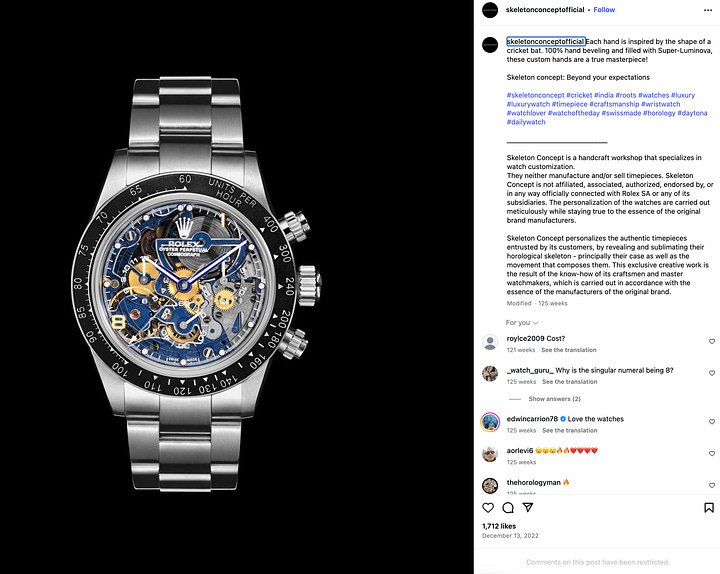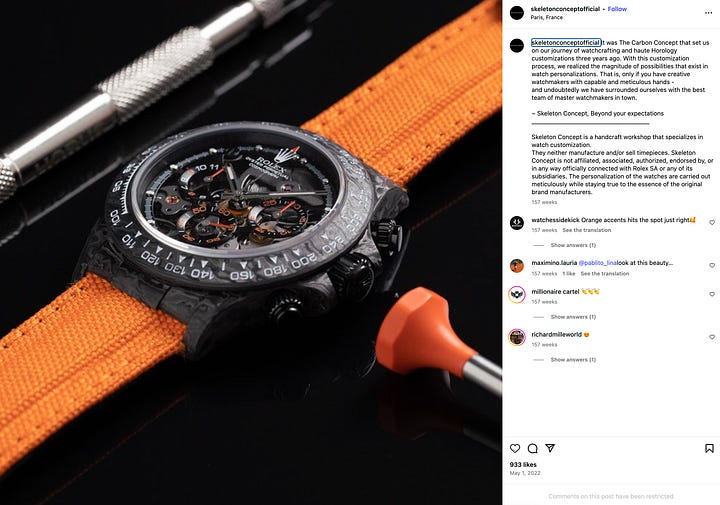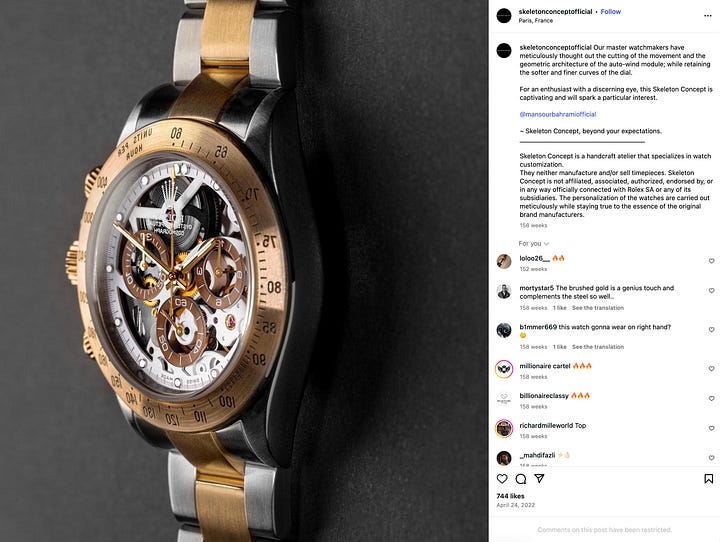The Art of Slowing Down
093: The Price of Prestige - Why Luxury Brands Are Suing Their Own Clients
In a significant ruling that will impact the luxury industry, a French court has recently ruled in favor of Rolex in its lawsuit against Skeleton Concept, a boutique watch customizer known for heavily modifying Rolex timepieces. The case, Rolex SA and Rolex France v. Skeleton Concept (RG 22/09315), sets a critical precedent for how courts may treat the boundaries between customization, resale rights, and brand protection going forward.
The Paris Judicial Court found that Skeleton Concept’s alterations ranging from internal modifications to engraved sapphire crystals and the use of dual branding violated Rolex’s trademark rights and constituted unfair competition. The court ordered Skeleton Concept to pay €710,000 in damages: €600,000 for trademark infringement, €100,000 for moral harm to the brand, and €10,000 for misleading “Swiss Made” claims, as the modifications occurred in France.




Despite Skeleton Concept’s defense that it only customized watches already sold by Rolex, the court rejected the argument of trademark exhaustion. It held that the transformations were so extensive they changed the identity of the watches and impaired Rolex’s ability to guarantee origin—an essential function of trademark law. The use of Rolex trademarks in social media hashtags and co-branding alongside Skeleton Concept’s own “V Concept” mark further blurred lines of brand authorship, the court said, noting that disclaimers on Skeleton’s website were insufficient to avoid consumer confusion.
The ruling reflects a broader legal pushback against unauthorized brand modifications in the luxury sector, especially as personalization and upcycling gain traction. For brand owners, the case reinforces the importance of protecting design integrity and the consumer’s perception of authenticity. For customizers and resellers, it signals that even with resale rights, deep alterations can trigger legal liability if they undermine brand value or mislead the market.
Another well-known example of companies taking legal action against modifications to products is with Ferrari.
To the untrained eye, buying a Ferrari might seem like the ultimate expression of freedom, wealth, and personal taste. But in Maranello, ownership comes with strings attached, lots of them.

